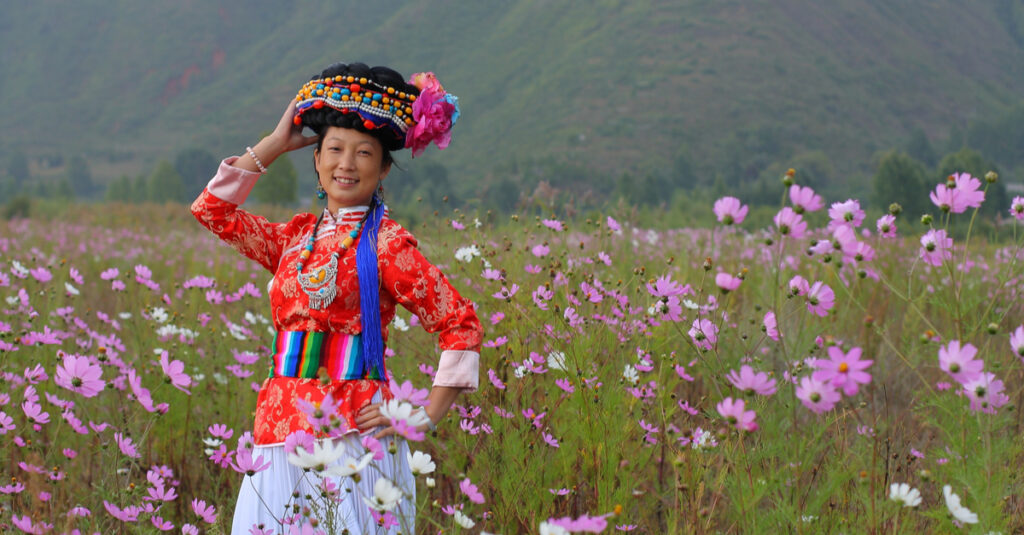Meet the Moso people, this matriarchal Chinese ethnic group with incredible customs
If current societies all appear more or less similar in their organization and their system of values, one Chinese ethnic group stands out in particular: that of the Moso. Governed by women and endowed with their own principles, these Asian people put living together at the heart of their daily lives.

In southwest China, near the Tibetan border, there are atypical people with a population of 30,000 to 60,000. Living around Lugu Lake, on the shores of China’s Yunnan and Sichuan regions, they have an 800-year-old social organization that has earned them the title of model people, a distinction awarded by the UN on the occasion. of the fiftieth anniversary of the international institution.
Among this matriarchal ethnic group, children spend their entire lives in the family home that the mother administers. More generally, women are at the heart of the life of the community and it is they who manage the family patrimony, pass on the name, inherit property, and cultivate the fields during the day.
And when the mother of the family dies, it is the eldest of her daughters who replaces her and becomes «Ama» or «Dabou» depending on the name used in the village. She then decides on the tasks to be accomplished on a daily basis, giving her instructions and managing the house where the other members of the family live.
The men, for their part, take care of the children when the women are in the fields, and get down to building houses and managing the external affairs of the village. Even more surprisingly, they assume a paternal role over their nephews and nieces because this responsibility does not fall on the parents themselves, but on the uncles, who have much more rights over the children than the real fathers.
Male family members can also be sent to Tibet, if their mother agrees, to receive Lama training from great Buddhist masters in order to eventually return to their village to become religious leaders.
With a view to maintaining the harmony essential to the Moso and founder of their organization, romantic relationships also respond to codes different from “classic” societies. For example, at the age of 13, each child reaches the age of majority and the girls then have their own bedroom. They are therefore free to discover sex, but also to wait the time that seems necessary to them before having this experience.
Later, women choose to introduce their mate to the whole household and he is accepted as a friend of the family. He is then brought to participate in the collective life of the other members, such as taking care of his partner’s children, even if they are not his own.
Moreover, the Moso do not get married and everyone lives their sexuality as they wish, without any notion of commitment. Because they consider marital union as a threat to harmony and consider that it amounts to a form of illusion. Thus, when they form couples, the two partners do not promise each other fidelity or other types of commitment, without this implying that one of the two lovers sleeps with another partner. Only, the Moso believe that they should not make a promise that could be broken.
The selection of romantic partners is done in particular during parties during which the Moso dance and seduce potential partners. But they do not seek to hide and no one judges their fellows on the way they charm or on their love choice. And when a rupture occurs, it is done in mutual respect, always in the name of the most important value of the matriarchal people: harmony.
The Moso and their customs appear particularly surprising as our societies are used to other social organizations. But these people seem to have found a functioning just as – if not more – viable than that to which the rest of the human species has now become accustomed and the latter could certainly be inspired by it. If you are interested in little-known cultures, also discover the origins of Santeria, this fascinating Afro-Caribbean religion.





